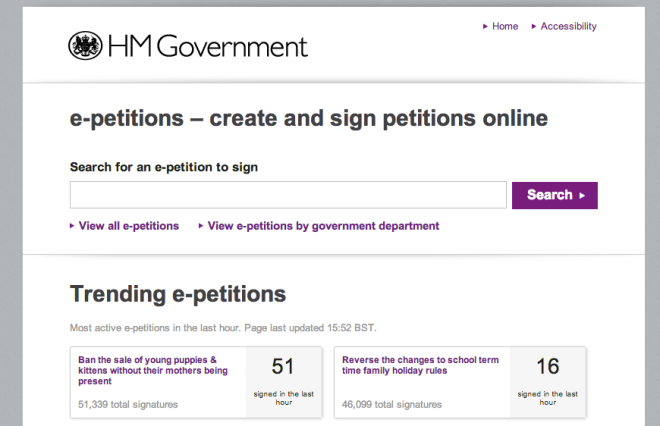By Taha Yasseri, Scott A. Hale, and Helen Margetts (Oxford Internet Institute)
Collective action taking place on Internet platforms leaves a digital imprint which may be harvested to better understand the dynamics of mobilization. This ‘big data’ offers social science researchers the potential for new forms of analysis, using real-time transactional data based on entire populations, rather than sample-based surveys of what people think they did or might do. This paper uses a big data approach to track the growth of about 20,000 petitions to the UK Government over two years, analyzing the rate of growth and the outreach mechanism. The number of signatures was collected for all petitions with an hourly resolution. The vast majority of petitions did not achieve any measure of success; over 99 percent failed to get the 10,000 signatures required for an official response, and only 0.1 percent attained the 100,000 required for a parliamentary debate. We analyze the data through a multiplicative process model framework to explain the growth of signatures. We have defined and measured an average outreach factor for petitions and show that it decays very fast (reducing to 0.1% after 10 hours); after 24 hours, a petition’s fate is virtually set.
Read the full paper here [PDF].
And if you are interested in e-petitions, you may also like this.

